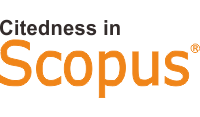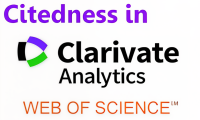Exploring Poverty Distribution: Islamic Legal Perspectives on the Categories of Fakir and Miskin
DOI:
https://doi.org/10.46870/milkiyah.v3i2.1147Keywords:
Fakir, Miskin, Islamic Law, PovertyAbstract
The Indonesian government offers various assistance programs aimed at supporting underprivileged families, including Program Keluarga Harapan (PKH) and Bantuan Pangan Non Tunai (BPNT). In Islamic context, the concept of poverty is categorized into eight asnaf (groups), one of which is the poor. Within this category, two specific terms used are fakir and miskin, both of which describe individuals experiencing poverty but differ in their degree of need. This study aims to analyse the distribution of fakir and miskin individuals, based on data from the Keluarga Penerima Manfaat (KPM) recipients of the PKH and BPNT programs across five sub districts in Boyolali Regency. Utilizing a survey methodology, the study employs the SAGIS application to conduct an interpretative analysis and identify the beneficiaries in these areas. A total of 785 KPMs, who receive aid from the PKH and BPNT programs, were surveyed across the five sub districts. Of these, 209 KPMs (26.7%) were categorized as fakir, 294 KPMs (37.4%) were classified as miskin, and the remaining 282 KPMs (35.9%) did not fall into either category.
References
Abbas, A. (2020). Does Zakat Signal the Firm Value? International Journal of Zakat, 5(1), 55- 66. https://doi.org/10.37706/ijaz.v5i1.205.
Abd, K., Hayati, N., & Fadilah, N. (2021). Al-Qur’an Solusi Paripurna: Menyelami Konsep-Konsep Al-Quran Dalam Memberantas Kemiskinan Ber-Multidimensi. ICoIS: International Conference on Islamic Studies, 2(1), 369–388.
Abdullahi, S. I. (2019). Zakah as Tool for Social Cause Marketing and Corporate Charity: A Conceptual Study. Journal of Islamic Marketing, 10(1), 191–207. https://doi.org/10.1108/JIMA-%0A03-2017-0025
Addae-korankye, A. (2019). Theories of Poverty: A Critical Review. Journal of Poverty, Investment and Development, 48(2012), 55–62. https://doi.org/10.7176/jpid/48-08
Aflah, K. N. (2017). Urgensi Penetapan Kriteria Fakir. Ziswaf: Jurnal Zakat dan Wakaf, 4(1), 167–192. http://dx.doi.org/10.21043/ziswaf.v4i1.3037
Ahmed, B. O., Johari, F., & Wahab, K. A. (2017). Identifying the poor and the needy among the beneficiaries of zakat Need for a zakat-based poverty threshold in Nigeria. International Journal of Social Economics, 44(4), 446–458. https://doi.org/10.1108/IJSE-09-2015-0234
Alam, A., Widiastuti, T., Sukmana, R., & Faridah, L. N. (2021). The Role of the National Amil Zakat Institution in Helping the Economy of Poor People with Blind Dissabilites Amid the Covid-19 Pandemic. 5th INTERNATIONAL CONFERENCE OF ZAKAT PROCEEDINGS, 369–379.
Andiani, K., Hafidhuddin, D., Beik, I. S., & Ali, K. M. (2018). Strategy of BAZNAS and Laku Pandai for Collecting and Distributing Zakah In Indonesia. Al-Iqtishad: Jurnal Ilmu Ekonomi Syariah, 10(2), 417–440. https://doi.org/10.15408/%0Aaiq.v10i2.6943
Arthur, C. (2021). Introduction to Qualitative Research Methods: A Practice-Oriented Introduction for Students of Psychology and Education. https://doi.org/10.13140/RG.2.1.3095.6888/1
Aziz, M. A., Din, B. H., & Abdulsomad, K. (2019). Transaction Costs of The Zakat Institution: An Open Innovation Approach. Institutions and Economies, 11(2), 43–71.
Ceular-Villamandos, N., Navajas-Romero, V., Del Río, L. C. Y. L., & Zambrano-Santos, L. Z. (2021). Workplace Situation and Well-being of Ecuadorian Self-Employed. Sustainability (Switzerland), 13(4), 1–26. https://doi.org/10.3390/su13041892
Faridy, N., & Bania, A. S. (2018). Analysis of Management Students Understanding of Interlingual Translation About Surah At-Taubah Verse 60. Proceedings of International Conference on Islamic Studies “Islam & Sustainable Development,” 128–132.
Hadid, A., Abdullahi, A., & Abdukad, S. (2021). The Effect of Utilizing Zakat Fund on Financing Production to Achieving Social Welfare: in Indonesia as a Case Study. Journal of Islamic Finance, 10(1), 019–029.
Hakim, L. (2020). Konsep Asnaf Fī Sabilillah Kajian Komparatif Pendapat Ulama. Jurnal Ekonomi Islam, 20(2), 1–11. file:///C:/Users/User/Downloads/112-Article Text-444-1-10-20201230.pdf
Hakim, R., & Noviyanti, R. (2022). Reinterpretation Of The Eight Groups Of Zakat Recipients: Special Issue On Fakir Miskin And Fi Sabilillah Dealing With The Impact Of Covid-19 In Indonesia. Amwaluna: Jurnal Ekonomi Dan Keuangan Syariah, 6(1), 160–180. https://doi.org/10.29313/amwaluna.v6i1.9095
Harjoyo, Waluyo, Suwandi, Oktarini, R., & Siswanto, T. A. (2021). Pelatihan Kemandirian Anak Yatim Dan Dhuafa dalam Mempersiapkan Masa Depan di Yayasan Tunas Insan Mulia, Sawangan Depok. Jurnal Pengabdian Sosial, 1(2).
Idrus, S., & Rosida, L. (2020). Poverty In Indonesia: Critical Review. Archives of Business Research, 8(6), 127–132. https://doi.org/10.14738/abr.86.8326
James, J. (2021). Confronting The Scarcity of Digital Skills Among the Poor in Developing Countries. Development Policy Review, 39(2), 324–339. https://doi.org/10.1111/dpr.12479
Kallang, A. (2020). Konteks Miskin dalam Teks Al Quran. Jurnal Al Walid, 1(2), 171–180. https://doi.org/10.30863/alwajid.v1i2.1255
Kementerian Agama Republik Indonesia. (2019). Al-quran dan terjemahannya. Jakarta: LPMQ Balitbang Kemenag.
Kementerian Sosial. (2021). Pedoman Pelaksanaan Program Keluarga Harapan Tahun 2021. In Kementerian Sosial Republik Indonesia (p. 76).
Kidwai, A. (2020). The “Ramadan Bailout” of Zakat Could help the world avoid a post-COVID-19 Great Depressionǀ View. Euronews.
Mader, P. (2018). Contesting Financial Inclusion. Development and Change, 49(2), 461–483.
Mustika, F. N., Setyowati, E., & Alam, A. (2019). Analysis Of Effect Of ZIS (Zakat, Infaq, And Shadaqah), Regional Domestic Products Of Bruto, Regional Minimum Wage And Inflation On Levels Poverty In Indonesia 2012 – 2016. Journal of Islamic Economic Laws, 2(2), 193–211. https://doi.org/10.23917/jisel.v2i2.8679
Nahuda, & Ahmad Rifa’i, N. (2022). Solusi Pengentasan Kemiskinan. Jurnal Revolusi Indonesia, 2(2), 175–188.
Najiyah, F., & Febriandika, N. R. (2019). The Role of Government in the Zakat Management: The Implementation of A Centralized and Decentralized Approach (Comparative Study in Indonesia and Malaysia). 101(Iconies 2018), 290–292. https://doi.org/10.2991/iconies-18.2019.57
Nurzansyah, M. (2021). Perbandingan Tafsir Kata Faqir Dan Miskin Dalam Al-Qur’an. Rausyan Fikr : Jurnal Pemikiran Dan Pencerahan, 17(1). https://doi.org/10.31000/rf.v17i1.4210
Owoyemi, M. Y. (2020). Zakat Management: The Crisis of Confidence in Zakat Agencies and The Legality of Giving Zakat Directly to The Poor. Journal of Islamic Accounting and Business Research, 11(2), 498–510. https://doi.org/10.1108/ JIABR-07-2017-0097
Parwa, I. G. N. J. L. A., & Yasa, I. G. W. M. (2019). Pengaruh Pendidikan dan Investasi Terhadap Pertumbuhan Ekonomi Dan Kemiskinan di Provinsi Bali. E-Jurnal EP Unud, 8(5), 945–973.
Peregrine, P. N. (2019). Sampling Theory. In Encyclopedia of Analytical Science (Issue November, pp. 143–149). https://doi.org/10.1016/B978-0-12-409547-2.14109-5
Purnomo, S. D. (2021). Analysis of Labor Absorption in Central Java Province. Journal of Economics and Business, 5(1), 240–244.
Purwanto, P., Sari, F. N., Burasukma, M., & Nursolihah, S. (2021). The Role of Islamic Social Finance Through Ziswaf and BMT During The Covid-19 Pandemic. MALIA: Journal of Islamic Banking and Finance, 5(2), 81. https://doi.org/10.21043/malia.v5i2.11911
Rachman, B., Agustian, A., & Wahyudi, N. (2018). Efektivitas dan Perspektif Pelaksanaan Program Beras Sejahtera (Rastra) dan Bantuan Pangan Non-Tunai (BPNT). Analisis Kebijakan Pertanian, 16(1), 1. https://doi.org/10.21082/akp.v16n1.2018.1-18
Refnita, D. R. . (2021). The Mustahik Zakat in Various Dimensions of Fiqh in Era Society 5.0. El-Mashlahah, 11(1), 13–28. https://doi.org/10.23971/elma.v11i1.2285
Saad, R. A. J., & Farouk, A. U. (2019). A Comprehensive Review of Barriers to A Functional Zakat System In Nigeria: What Needs to be Done? International Journal of Ethics and Systems, 35(1), 24–42. https://doi.org/10.1108/IJOES-06-2018-0090
Shukla, S. (2020). Concept of Population and Sample. How to Write a Research Paper, June, 1–6. https://www.researchgate.net/publication/346426707_CONCEPT_OF_POPULATI
Sugiyono, P. D. (2019). Metode Penelitian Pendidikan (M. T. Dr. Apri Nuryanto, S.pd., S.T. (ed.); Edisi ke-3). ALFABETA.
Suleman, S. A., & Resnawaty, R. (2017). Program Keluarga Harapan (PKH): Antara Perlindungan Sosial Dan Pengentasan Kemiskinan. Prosiding Penelitian Dan Pengabdian Kepada Masyarakat, 4(1), 88. https://doi.org/10.24198/jppm.v4i1.14213
Tim Pengendali Pelaksanaan Penyaluran Bantuan Sosial Secara Non Tunai. (2020). Pedoman Umum Program Sembako 2020.
UIN Sunan Ampel. (2018). Ayat-ayat Kemiskinan Dalam Al-Qur‘an. Retrieved from digilib.uinsby.ac.id
World Health Organization. (2021). Using Multidimensional Poverty and Vulnerability Indices to Inform Equitable Policies and Interventions in Health Emergencies. In States News Service.
Zulkifli, M. F., Taha, R., Awang, R. N., Mohd Nor, M. N., & Ali, A. (2021). Combating Poverty in Malaysia: The Role of Zakat. Journal of Asian Finance, 8(5), 505–0513. https://doi.org/10.13106/jafeb.2021.vol8.no5.0505
Downloads
Published
How to Cite
Issue
Section
License
Copyright (c) 2024 Milkiyah: Jurnal Hukum Ekonomi Syariah

This work is licensed under a Creative Commons Attribution-NonCommercial 4.0 International License.

















